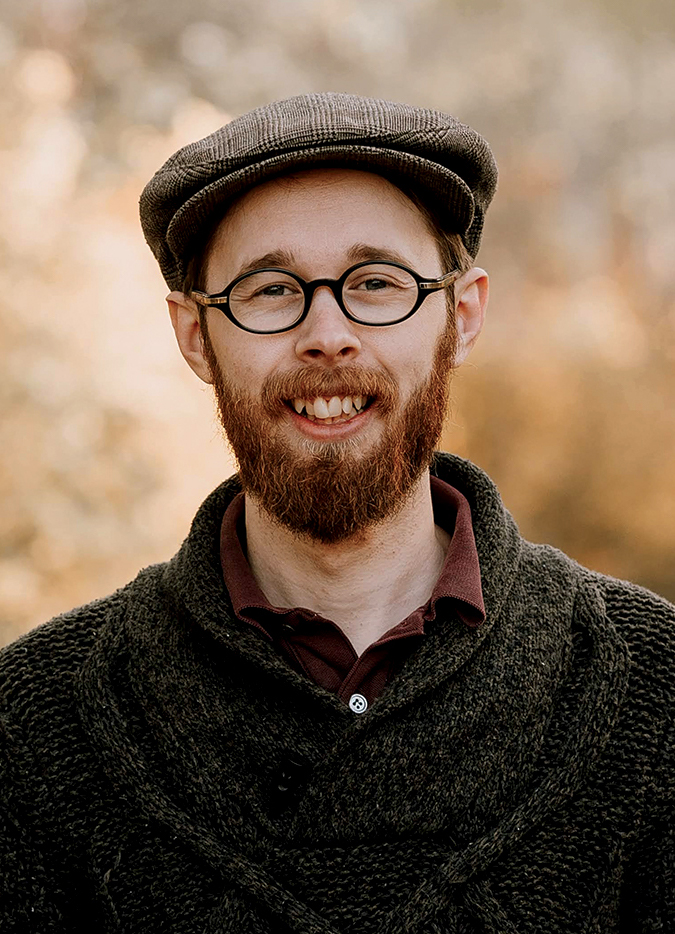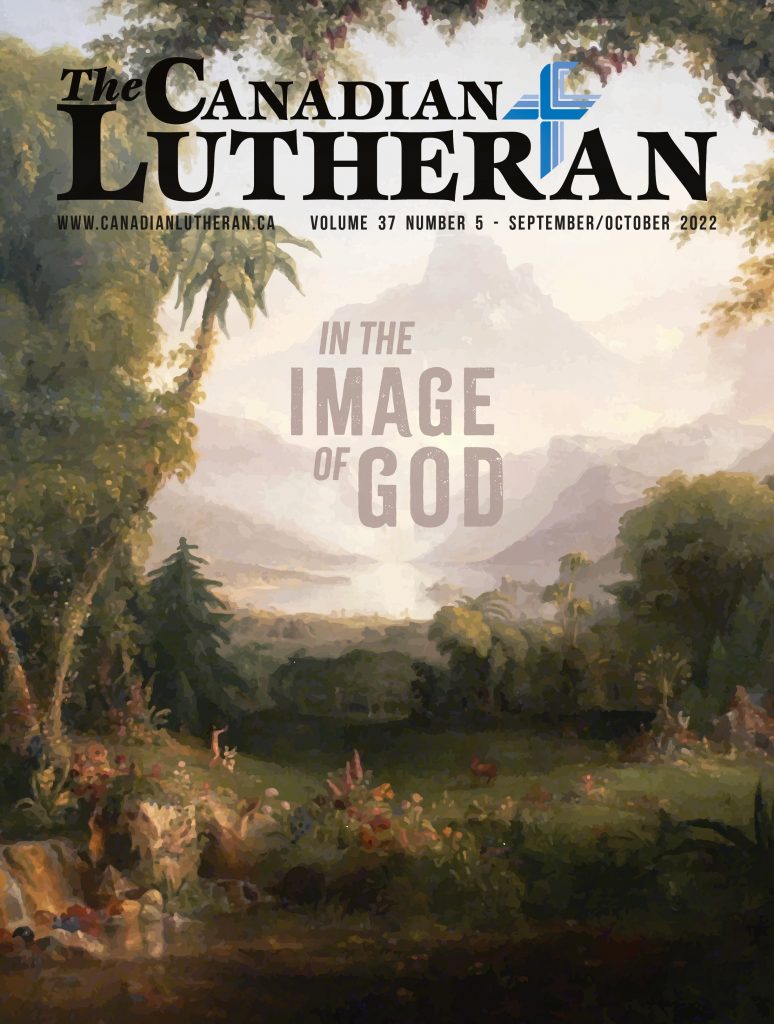This Body of Death
 by Mathew Block
by Mathew Block
“So God created man in His own image; in the image of God He created him; male and female He created them.” | Genesis 1:27
The creation of humankind is probably one of the best-known stories in Scripture. Just ask any Sunday School kid and they’ll tell you all about Adam and Eve. But because the story is so well-known, there is a danger that we pass over it quickly and fail to see the miracle for what it is: when God created humankind, He created them “in His own image.”
Think about that for a moment. Over the preceding days of creation, we read about the origin of everything, ranging from light on day one to animals on days five and six. But here, at the end of the sixth day, we see something unique. We see the creation of a creature that shares in the nature of God Himself—a creature made in His very image.
Of course, “nothing gold can stay,” as the poet Robert Frost once wrote; in too short a time, “Eden sank to grief.” Sin and death entered the world, and the image of God in man was left disfigured. It remains in part, but it is now a twisted thing, imperfect and misshapen. On our own, we no longer share an innate and right relationship with God; the “very good” nature with which He created us has been utterly corrupted.
The rest of creation also fell when humankind fell, and so now we bear our broken bodies through a broken world. We face sickness and injury. We know pain and sorrow. We are afflicted by our own sin as well as the sin of others. We live, in short, in a land of darkness and the shadow of death (Matthew 4:16). And nowhere is this darkness more apparent than in our own flesh and minds. We cannot escape our sin. We cannot rebuild the shattered image of God within us.
As Christians, we can look beyond the troubles of this world, knowing that our broken bodies of death have been incorporated into the living Body of Christ. Our sinful hearts have been subsumed in His own beating heart of love. And His life—His likeness—flows into us abundantly through His Word and Sacraments.
Looking at our broken bodies and our sin-riddle souls, we find ourselves crying out the same words as the Apostle: “Wretched man that I am! Who will deliver me from this body of death?” (Romans 7:24).
And the Apostle answers: “Thanks be to God through Jesus Christ our Lord!” (7:25).
Christ is indeed the answer for our broken bodies of death. In fact, He is the Word of God which first spoke the divine image into the lives of our first parents. Seeing that image destroyed—seeing His good creation sullied and distorted—He came in love to recreate us. We read in Scripture that this God-man, Jesus Christ, is Himself the very “image of the invisible God” (Colossians 1:15). He is able to restore that same image in us.
In the incarnation, Jesus took on human flesh and spirit that He might redeem human flesh and spirit. By offering up His body to death, He saved us from our bodies of death. By becoming sin for us, He rescued us from sin. And through His resurrection, He raises you to new life; He restores the image of God within you. For through Him we have “put off the old self with its practices,” St. Paul writes, “and have put on the new self, which is being renewed in knowledge after the image of its Creator” (Colossians 3:10).

This promise of renewal is our hope and joy in this fallen world. For while we still experience the pains and suffering that come through sin and the fall, we know that these things are passing away. We “groan inwardly as we wait eagerly for adoption as sons, the redemption of our bodies,” St. Paul writes, “for in this hope we were saved” (Romans 8:23). We look forward to eternity, when we will see the completion of our re-creation as we are at last truly “conformed to the image of His Son” (8:29).
In this issue, we consider some of the challenges that afflict our souls and bodies in this fallen world. Alex Steinke leads us in a discussion of mental illness, pointing us to the God who bears us up in the midst of these sorrows. In another feature, Rev. Dr. James Keller tackles the timely subject of gender dysphoria, offering the good news of the Gospel for those who face gender confusion. Rev. Ling Pui Yeong, meanwhile, brings our attention back to Christ, in whose image we have been recreated, encouraging us to find our ultimate identity in Him.
As Christians, we can look beyond the troubles of this world, knowing that our broken bodies of death have been incorporated into the living Body of Christ. Our sinful hearts have been subsumed in His own beating heart of love. And His life—His likeness—flows into us abundantly through His Word and Sacraments.
O God, fill us with the life of Your Son and recreate us in His image! Renew and restore us, dear Lord, according to Your promise!
———————
Mathew Block is editor of The Canadian Lutheran and the Communications Manager of the International Lutheran Council (ILC).




